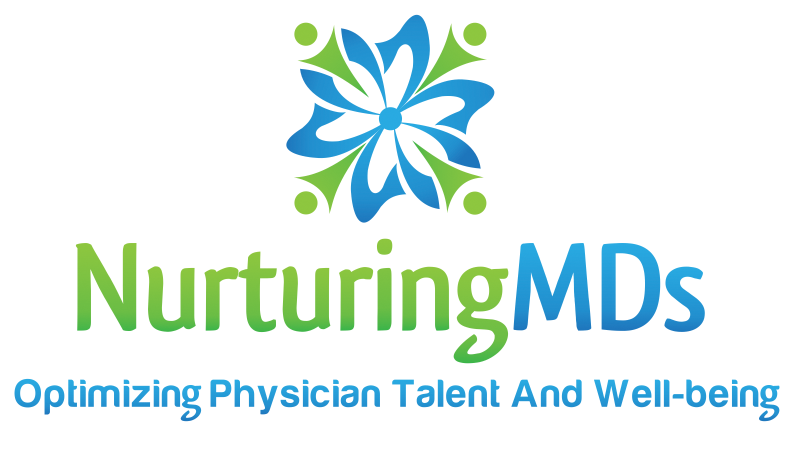I sat across the table from my physician client and listened to her story. She asks, “How can it be that after 4 years of medical school and 3 years of residency training in my chosen field I feel so disillusioned and disconnected?
Instead of seeing the excitement of starting a new chapter in her career or even acknowledging some trepidation about becoming an attending with the increase pressures of this new level of responsibility, a quiet sadness surrounded her. It wasn’t the sadness of moving on and leaving peers behind. No it wasn’t that.
It was the sadness of the brokenness that residency training left in its wake. She certainly was not the image of the smiling doctor wearing the white coat and stethoscope that you might see on the pages of a website. And she is not alone.
Whether you call it physician burnout, frustration, overwhelm, stress, or as I do the sadness from brokenness, it is a dis-ease that does not discriminate based on gender, race, specialty, level of training or years in practice. I’ve met amazing physicians, years into their careers who understood the necessity to take time off from practice to recover. I’ve met talented, highly skilled clinicians who lost personal fulfillment in their life.
Some doctors appear to thrive in the present climate in medicine. It propels them to excel. While others wade through the water just trying to make it to the other side. And as we know others break.
Sitting across from my client stirred feelings deep within me. It brought back memories. How could it be that almost 2 decades later the struggle in medicine still exists? It persists. How is it that a profession that dedicates itself to research and has embraced and utilizes technology to the point of having robotic surgeries, has neglected its people.
There is a disconnection that we can no longer ignore. Success in medicine does not automatically equate to a successful life.
Somehow, somewhere in the process of studying, honing clinical skills, and focusing on delivering best outcomes for patients, we sacrifice our humanity. We have to acknowledge this problem and the role we play in it. We have to be willing to shift into a new model where we educate and train one another in a collegial spirit and not as competitors. We have to learn to nurture and not destroy.
So, together we sifted through the sadness of her brokenness. Healing had to occur in order for her to experience transformation and emerge as the physician she is meant to be. The life lessons can only be recognized, understood, and utilized after the pain of the trauma is released. The life lessons revealed her resiliency. It revealed her commitment to completing the program when there was every reason for her to quit. It revealed her courage to ask for help in a profession where suffering in isolation is more prevalent.
Could these lessons mold and shape her into a doctor who emerges to show compassion and understanding and perseverance towards her own patients when they need it the most? Aren’t these qualities that we want our doctors to embody? Is there another to develop such qualities without having to feel demoralized in the process?
As I think about the future of medicine, I ask myself might this be the next leading edge of medicine? Can the current structure in medicine make room for the personal development doctors need to experience success in all areas of life, not solely on the professional front?
My clients tell me yes. The doctors, who are courageous enough to reach out for help, affirm it is the new direction for medicine in order for physicians to thrive. And it is not solely for physicians.
It’s evidenced by the nurse practitioner whose career has expanded beyond the bedside to include publishing in nursing journals, speaking at conferences, and contributing to the core curriculum for training emerging practitioners in the NICU, who attributes her achievements and success in her personal and professional life to the strategies mapped out together when her career was in its infancy 19 years ago.
It’s evidenced by the resident who does her inner work to release the feeling of not being good enough so it no longer influences her career decisions. Now she steps boldly into living her fullest potential and the contributions she makes in medicine.
It’s evidenced by the physician who incorporates daily practices into her everyday life to promote peace and harmony and combat stress as she adjusts to life as an attending physician.
Medicine needs its doctors, nurses, practitioners, and teams to release their brokenness and embrace the wholeness of life so they can fully demonstrate best practices in their delivery of patient care and their delivery of care to themselves. Patients are not the only ones who need to heal to make room for life to flow. When we heal we shift from seeing only the struggle in medicine and avail ourselves to the solutions and support we need to move through it all.
Maybe this is the leading edge of medicine? Maybe?



